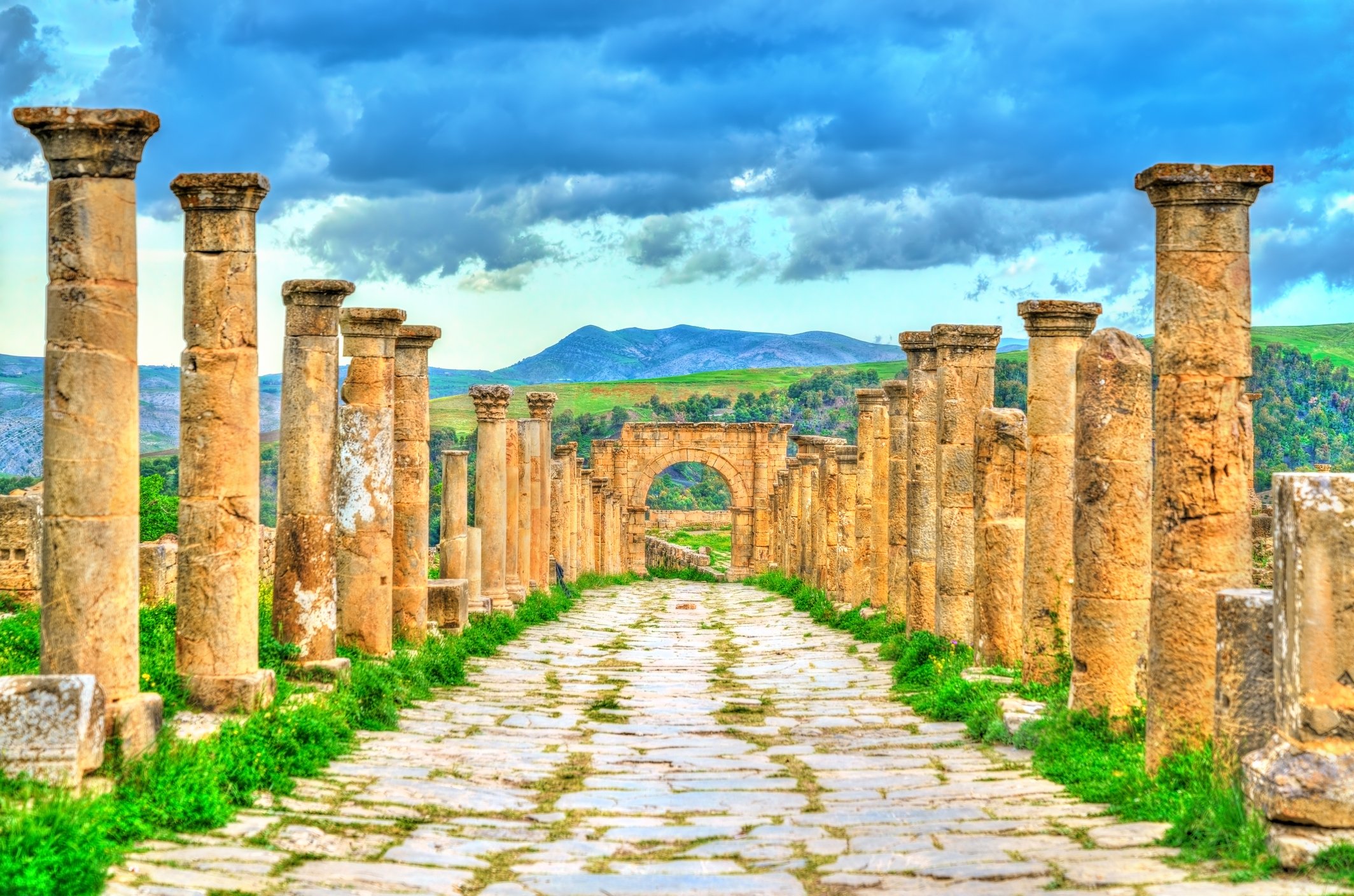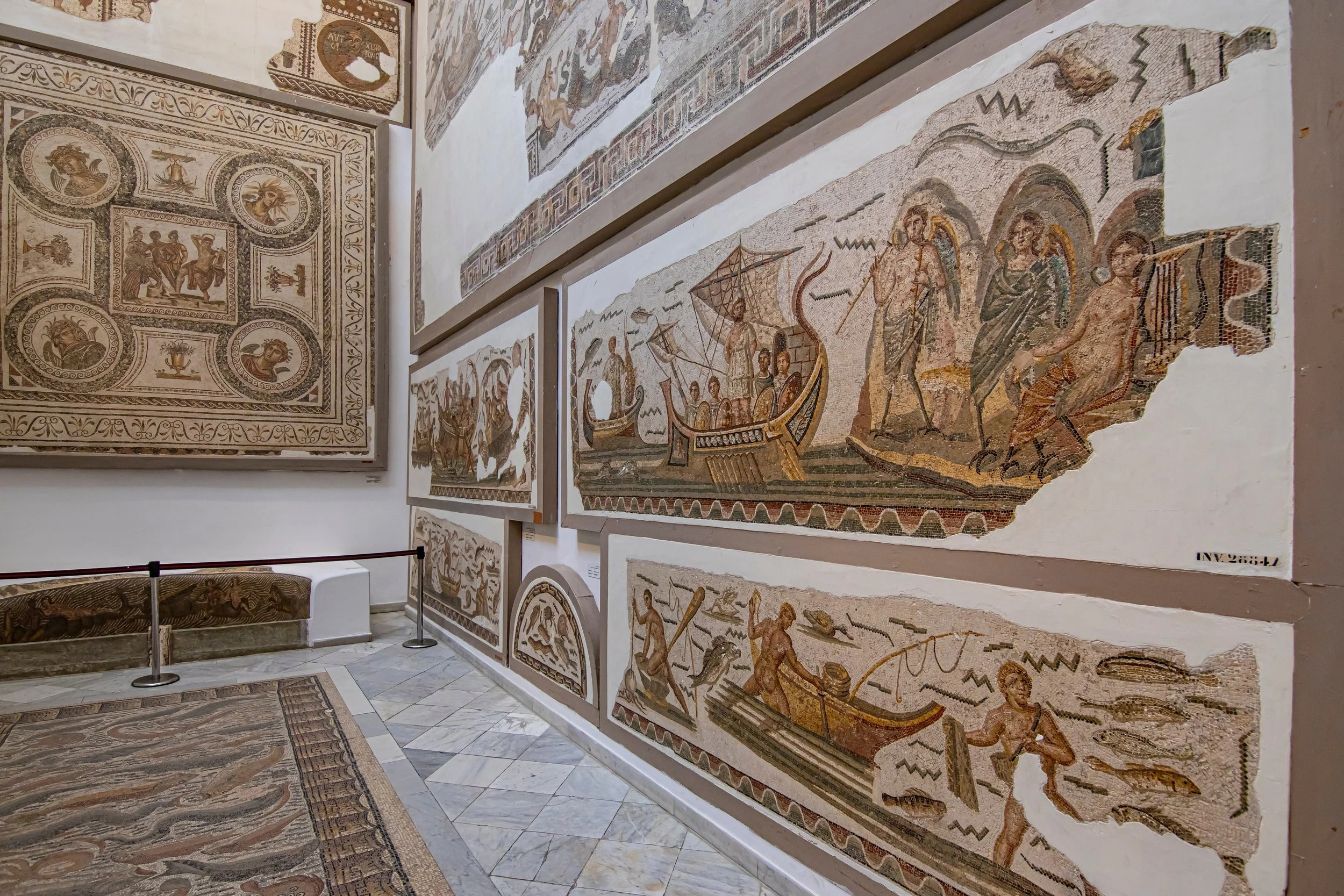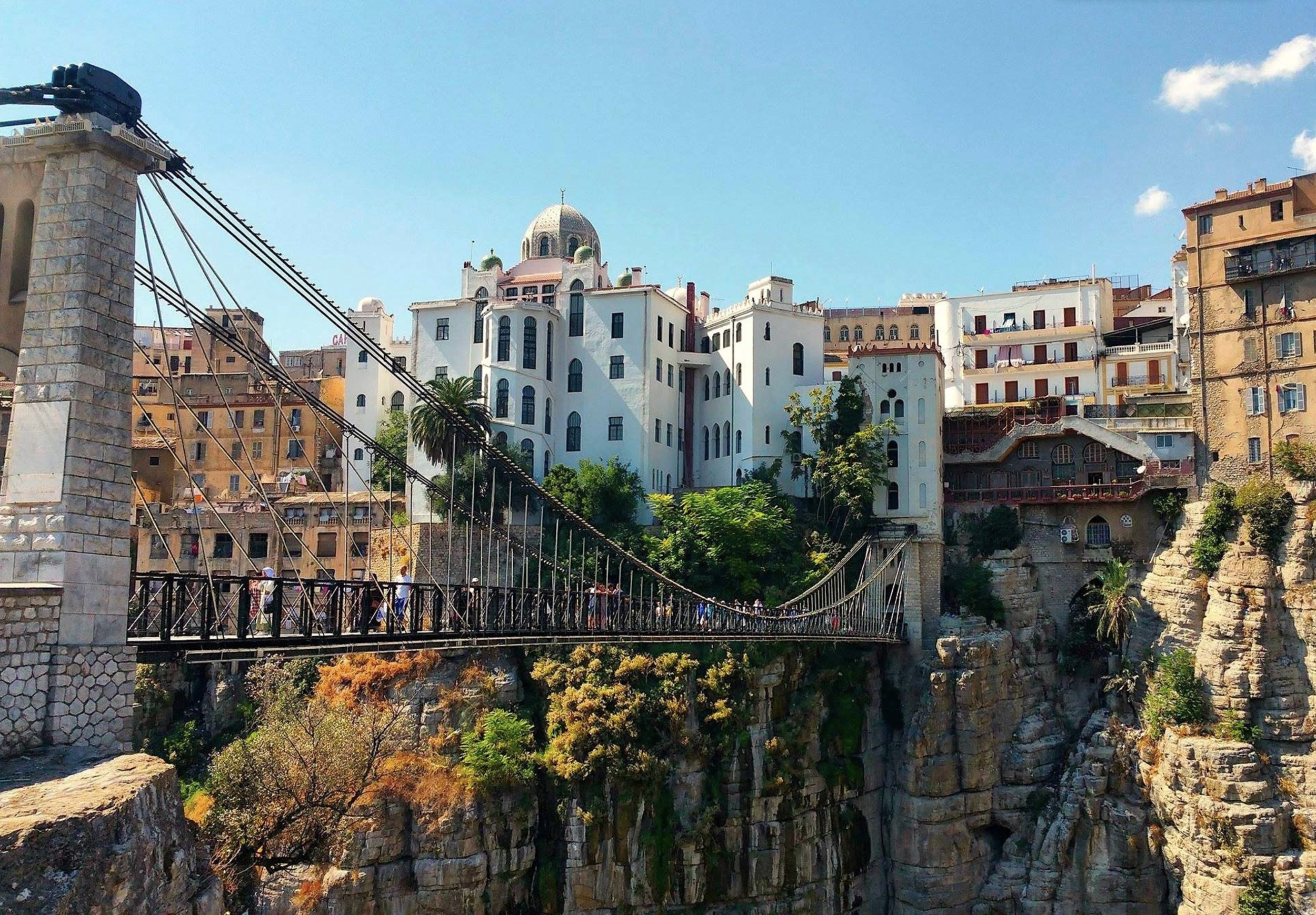
ALGERIA & TUNISIA
TREASURES BETWEEN THE DESERT & THE SEA
From spectacular Roman sites to Berber oasis villages, discover the best of Algeria and Tunisia on this comprehensive tour.
TOUR STATUS
Waitlist | Tour Full
TOUR DATES
Jan 26 - Feb 14, 2026 | 20 Days
TOUR LEADER
Dr Eireann Marshall | View Bio
snapshot
-
-
The tour starts at 6.00pm on Monday 26 January, at the Hotel El Aurassi, Algiers.
The tour ends at 11.30am on Saturday 14 February, on arrival at Tunis-Carthage International Airport, for departing flights home.
-
Grade Three. This tour is among our most physically demanding.
-
19 nights’ accommodation in centrally located 4 and 5-star hotels. All breakfasts, 13 lunches and 9 dinners. Services of an expert tour leader and an experienced tour manager throughout. Internal economy flights as indicated, all ground transport, entrance fees and tipping.
-
$13,860 AUD per person, twin share (land content only)
$2,390 AUD supplement for sole use of a hotel roomA $1,000 AUD non-refundable deposit is required per person to confirm your booking on tour
-
Tour Full. Bookings are closed.
OVERVIEW
Algeria and Tunisia are two of northern Africa’s historical jewels – fascinating countries that share a common border and an intertwined history.
On this 20-day cultural odyssey led by Dr Eireann Marshall, we explore a region that has been shaped by a succession of civilisations over the centuries, including the Phoenicians, Carthaginians, Romans and more recently, the French, with their lasting legacies etched into the landscape.
Beginning in vibrant Algiers, we visit many of the magnificant ruins that define this region, including the Roman city of Timgad – the ‘Pompeii of Africa’ – before travelling to the dramatic city of Constantine, the spectacular ruined town of Djémila, and Setif, renowned for its exceptional collection of Roman mosaics. A short flight then brings us to Tunis, where we tour the highlights of the Numidian, Phoenician and Roman worlds, such as mighty Carthage and ancient Dougga, one of the oldest towns in Tunisia. We conclude in the port town of Sousse, where we visit the nearby Amphitheatre of El Jem, a colossal structure rivaling Rome’s Colosseum.
tour highlights
Discover extraordinary UNESCO World Heritage Sites, opulent Byzantine churches, historic medinas and superb Islamic mosques.
Dr Eireann Marshall
your expert tour leader
Eireann is an Honorary Research Associate and Associate Lecturer with the Open University. Raised in the Veneto, she was educated in Barnard College, Columbia University, in New York, as well as the Universities of Birmingham and Exeter in England, where she has lectured. With her vast lecturing and guiding experience, Eireann has in depth knowledge of Italy, its history and archaeology. Eireann has led many tours, including several to Ravenna, Venice, Pompeii, Sicily and Tunisia.
Accompanied by an Experienced Tour Manager
Alongside your expert tour leader, an experienced tour manager will accompany for the entirety of the tour. They oversee logistics, ensure your comfort and safety, and provide friendly support – whether offering tips for free time, sharing a chat over dinner, or giving you space to relax.
tour ITINERARY
Algiers (5 nights), Constantine (2 nights), Setif (2 nights), Algiers (1 night), Tunis (4 nights), Teboursouk (1 night), Sousse (4 nights)
Included meals are shown with the letters B, L and D
Hotels have been selected principally for their central location. All hotels are a comfortable four-star standard.
Tour Accommodation
Algiers, Hotel El Aurassi | 6 Nights, Total
Constantine, Marriott Hotel | 2 Nights
Setif, Park Mall Hotel | 2 Nights
Tunis, The Residence | 4 Nights
Teboursouk, Hôtel Thugga | 1 Night
Sousse, Palace Hotel & Spa | 4 Nights
tour booking
$13,860 AUD per person, twin share (land content only)
$2,390 AUD supplement for sole use of a hotel room
A $1,000 deposit is required per person to confirm your booking on tour. This deposit is non-refundable.
Join Waitlist
There are currently no places available on this tour.
A place on the waitlist is not a confirmed place on tour. If you would like to be notified if a place becomes available on tour, please register your details below.
your tour consultant
The consultant for this tour is Jamal Fairbrother. For further information or to discuss the tour, please call 9235 0023 (Sydney) or 1800 639 699 (outside Sydney) or email jamal@academytravel.com.au
have you thought about?
Academy Travel is more than just a tour operator. We are also a full-service travel agency who can assist you with all aspects of your travel, including flights, transfers, pre-tour arrival, additional travel and comprehensive travel insurance.
can’t make this departure?
If these dates don't work for you, register to hear about the next tour.




























